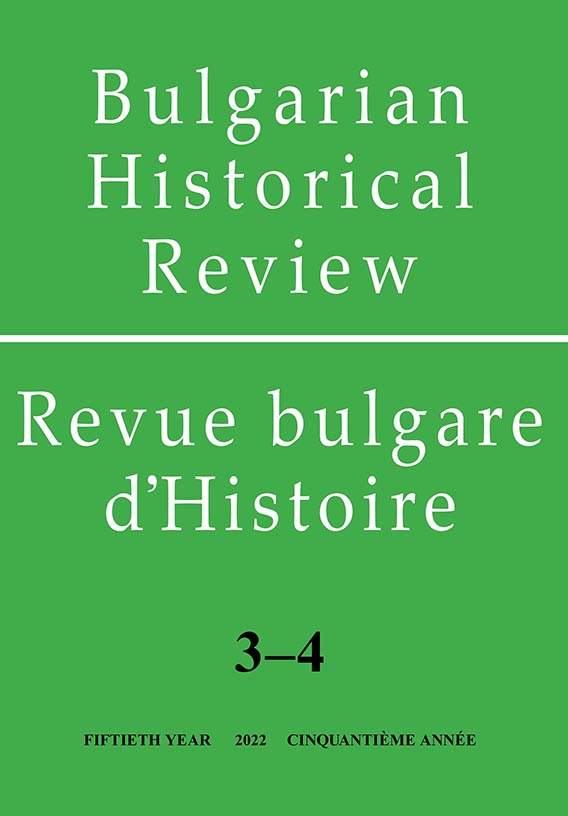The Farm and Family of a Well-To-Do Peasant from the Province of Rumeli in the Early Seventeenth Century
The Farm and Family of a Well-To-Do Peasant from the Province of Rumeli in the Early Seventeenth Century
Author(s): Stefka ParvevaSubject(s): History, Economic history, Local History / Microhistory, Social history, Modern Age, Special Historiographies:, 17th Century, The Ottoman Empire
Published by: Институт за исторически изследвания - Българска академия на науките
Keywords: peasant; inheritance inventory (tereke defter); household microeconomy; family story; kadı court records;
Summary/Abstract: The study aims to outline the main characteristics of the farm of a well-to-do peasant from the province of Rumeli in the early seventeenth century and to tell his family story. The first part of the study analyzes the inheritance inventory (tereke defter) of the properties of Tsono, son of Todor from the village of Dobroslavtsi in the kaza of Sofia, left to his heirs after his death. The microeconomics of the farm he created is reconstructed. Its potential for providing surpluses from agriculture and animal husbandry and for the formation of the property status of the family is analyzed. The second part of the study, based on information from documents (hüccets) registered in the kadı court records of Sofia from 1617, examines aspects of family history, focusing on the murder of the said peasant, organized by his wife and carried out by two of his countrymen. The criminal and spiritual aspects of the crime are analyzed, the ways and means that existed during the epoch for its avoidance are outlined.
Journal: Bulgarian Historical Review / Revue Bulgare d'Histoire
- Issue Year: 2022
- Issue No: 3-4
- Page Range: 35-86
- Page Count: 52
- Language: English
- Content File-PDF

